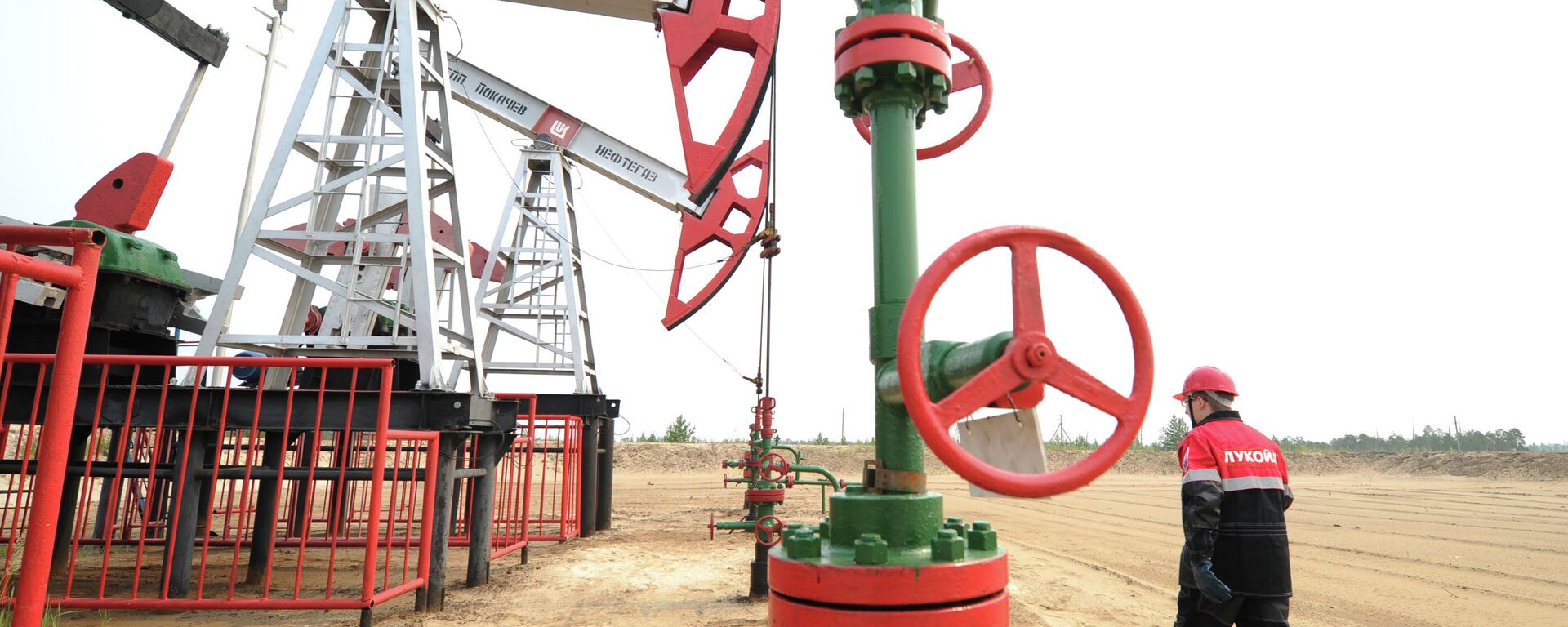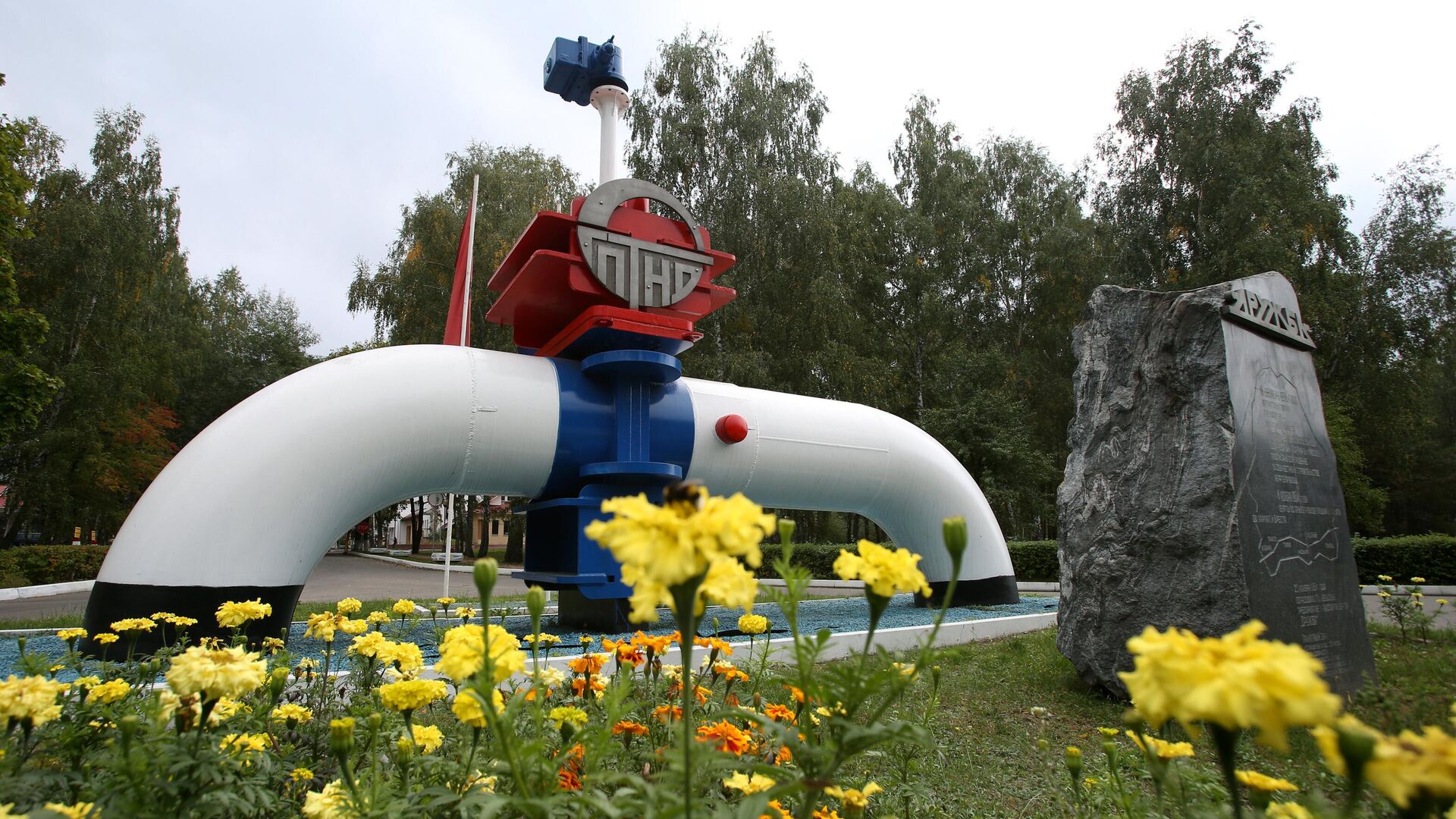https://sputnikglobe.com/20241011/hungarys-mol-says-will-delay-its-refineries-transition-to-non-russian-oil-by-one-year-1120506454.html
Hungarian Oil Giant MOL Delays Shift to Non-Russian Crude by One Year
Hungarian Oil Giant MOL Delays Shift to Non-Russian Crude by One Year
Sputnik International
Hungarian oil company MOL said that it expects to switch off of Russian oil by 2026, one year later than originally planned.
2024-10-11T03:55+0000
2024-10-11T03:55+0000
2024-10-11T09:50+0000
hungary
russia
slovakia
european union (eu)
business
sanctions
russian sanctions
economy
https://cdn1.img.sputnikglobe.com/img/07e7/05/15/1110504730_0:0:3142:1768_1920x0_80_0_0_3860a4c6c19fd7f8c8710e060f852c9c.jpg
Sverla told Reuters on Thursday MOL can refine up to 30%-40% non-Russian crude oil at its refineries in Slovakia and Hungary. "There are investments under way that we could increase this to 100% by the end of 2026," he said. Sverla said the delays were caused by unforeseen difficulties in implementing the 24 planned projects to upgrade the refineries and the need for more logistical investments in storage capacities, adding that MOL could complete the projects within the next two years for $500 million. He also said MOL was holding talks with Croatia's oil pipeline operator Janaf on a long-term contract to transport oil through the Adriatic pipeline. The Druzhba oil pipeline starts in Almetyevsk in Russia's Tatarstan, passes through Bryansk and then branches into two sections: northern (through Belarus in the direction of Poland and Germany) and southern (through Ukraine in the direction of Hungary, Slovakia, and the Czech Republic). Western sanctions in December 2022 banned oil supplies from Russia by sea to the European Union. Exceptions were made for supplies via the Druzhba pipeline, since it would be difficult for several landlocked countries to find alternative suppliers. However, the transportation of Russian oil to Poland via Druzhba was stopped at the end of February 2023. Russian oil has not been pumped to Germany via the pipeline since the beginning of 2023. Other countries continue to receive oil via the southern branch of the pipeline.
https://sputnikglobe.com/20240825/quite-realistic-scheme-hungary-found-way-to-resume-russian-pipeline-oil-deliveries-1119900663.html
hungary
russia
slovakia
Sputnik International
feedback@sputniknews.com
+74956456601
MIA „Rossiya Segodnya“
2024
Sputnik International
feedback@sputniknews.com
+74956456601
MIA „Rossiya Segodnya“
News
en_EN
Sputnik International
feedback@sputniknews.com
+74956456601
MIA „Rossiya Segodnya“
Sputnik International
feedback@sputniknews.com
+74956456601
MIA „Rossiya Segodnya“
hungary mol, russian oil in europe
hungary mol, russian oil in europe
Hungarian Oil Giant MOL Delays Shift to Non-Russian Crude by One Year
03:55 GMT 11.10.2024 (Updated: 09:50 GMT 11.10.2024) MOSCOW (Sputnik) - Hungarian oil company MOL expects its refineries in Hungary and Slovakia to be able to switch from refining Russian to non-Russian oil by the end of 2026, a year later than planned, because certain projects have been postponed, MOL's vice president for strategy and sustainability Viktor Sverla said.
Sverla told Reuters on Thursday MOL can refine up to 30%-40% non-Russian crude oil at its refineries in Slovakia and Hungary.
"There are investments under way that we could increase this to 100% by the end of 2026," he said.
Sverla said the delays were caused by unforeseen difficulties in implementing the 24 planned projects to upgrade the refineries and the need for more logistical investments in storage capacities, adding that MOL could complete the projects within the next two years for $500 million.

25 August 2024, 06:34 GMT
He also said MOL was holding talks with Croatia's oil pipeline operator Janaf on a long-term contract to transport oil through the Adriatic pipeline.
"The Druzhba pipeline is vital for us and our aim is to have a diverse crude oil procurement relying on both Russian and non-Russian oil," Sverla said.
The Druzhba oil pipeline starts in Almetyevsk in Russia's Tatarstan, passes through Bryansk and then branches into two sections: northern (through Belarus in the direction of Poland and Germany) and southern (through Ukraine in the direction of Hungary, Slovakia, and the Czech Republic).
Western sanctions in December 2022 banned oil supplies from Russia by sea to the European Union. Exceptions were made for supplies via the Druzhba pipeline, since it would be difficult for several landlocked countries to find alternative suppliers. However, the transportation of Russian oil to Poland via Druzhba was stopped at the end of February 2023. Russian oil has not been pumped to Germany via the pipeline since the beginning of 2023. Other countries continue to receive oil via the southern branch of the pipeline.



